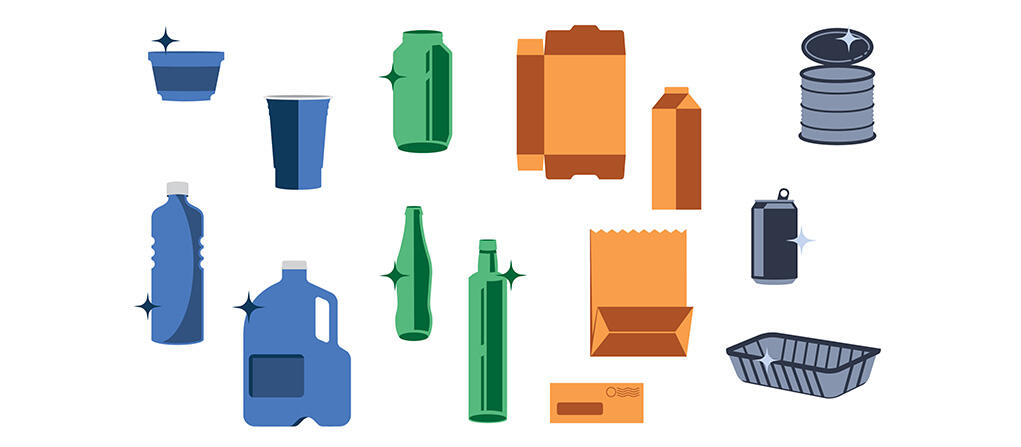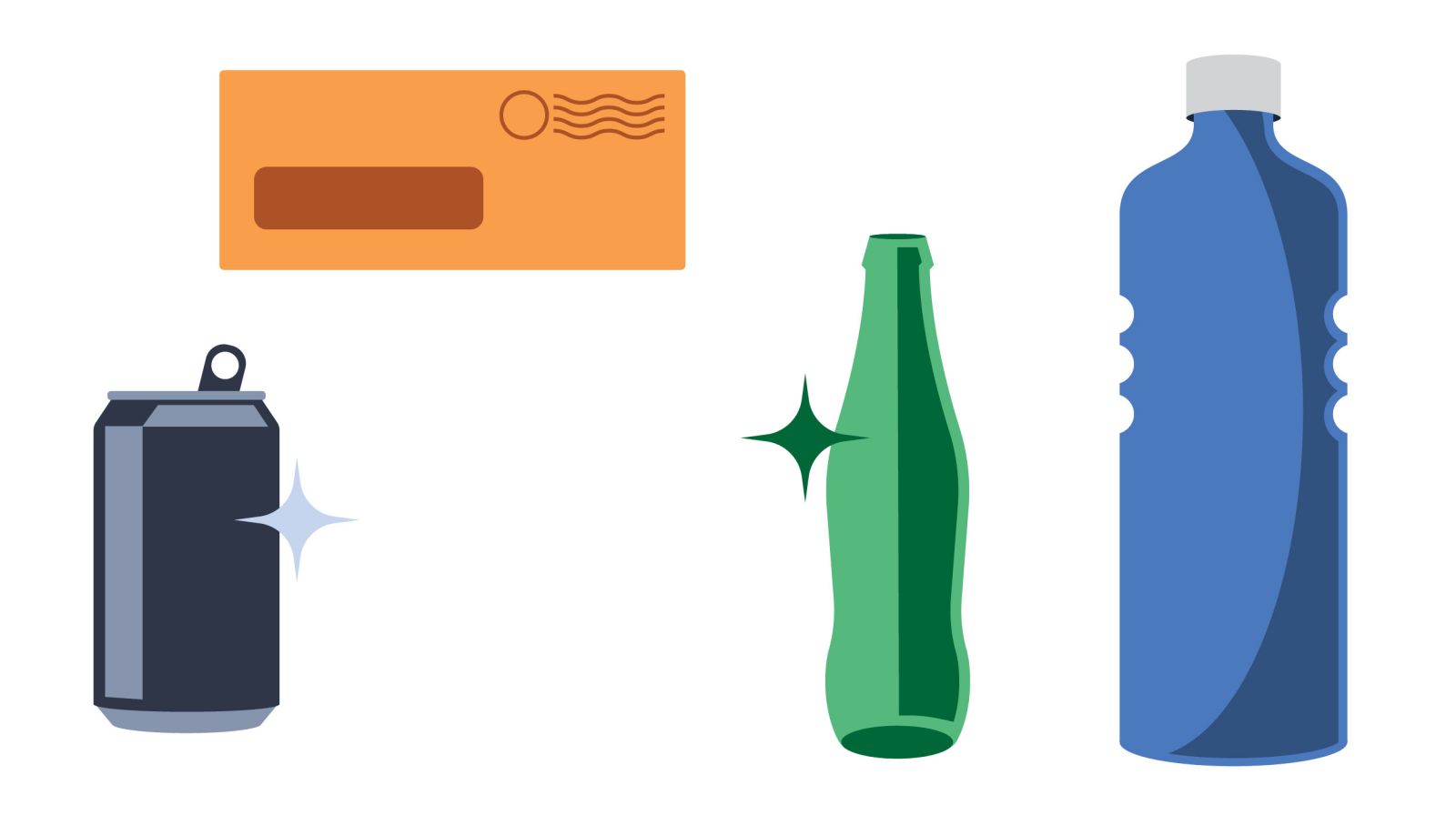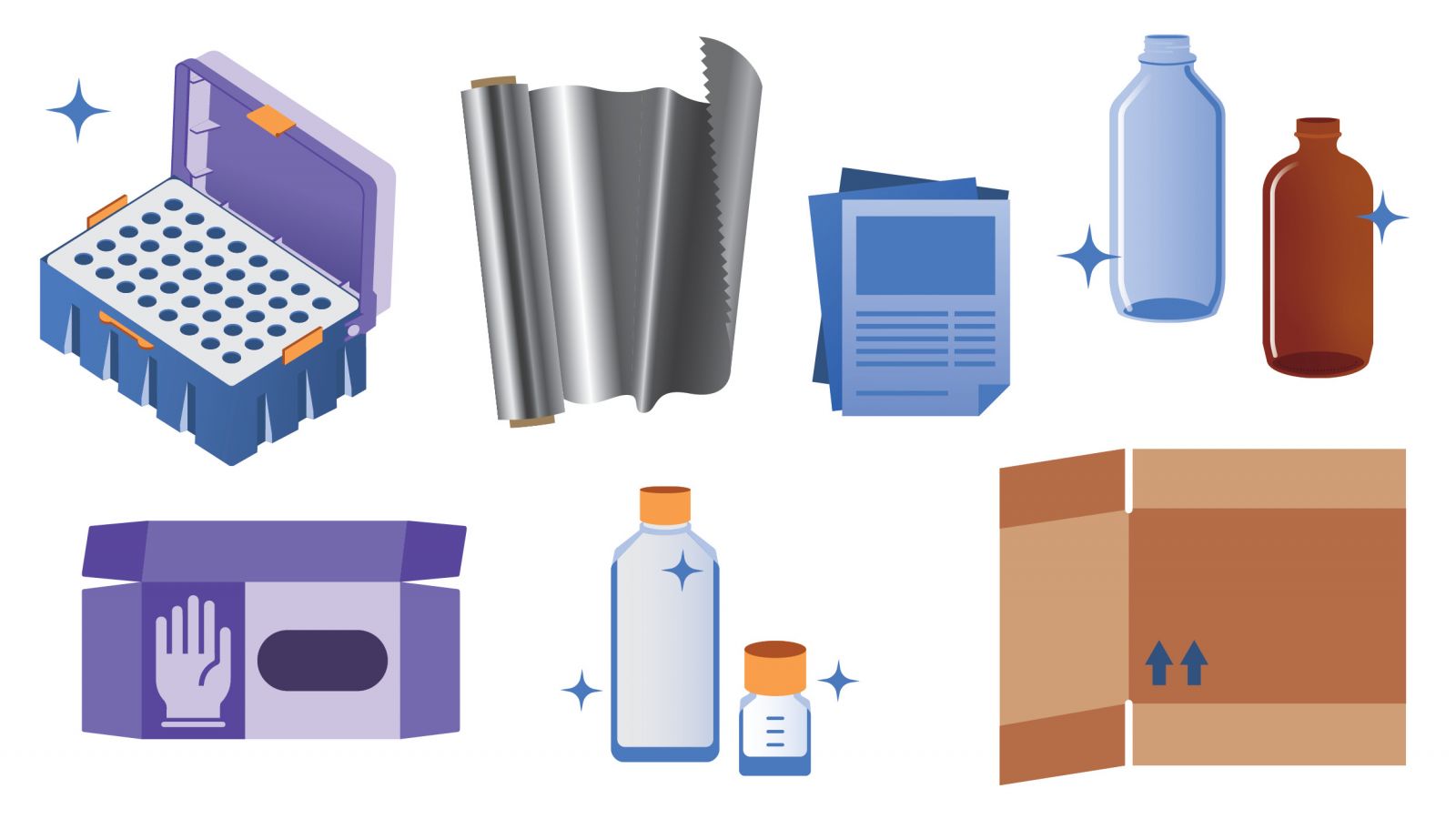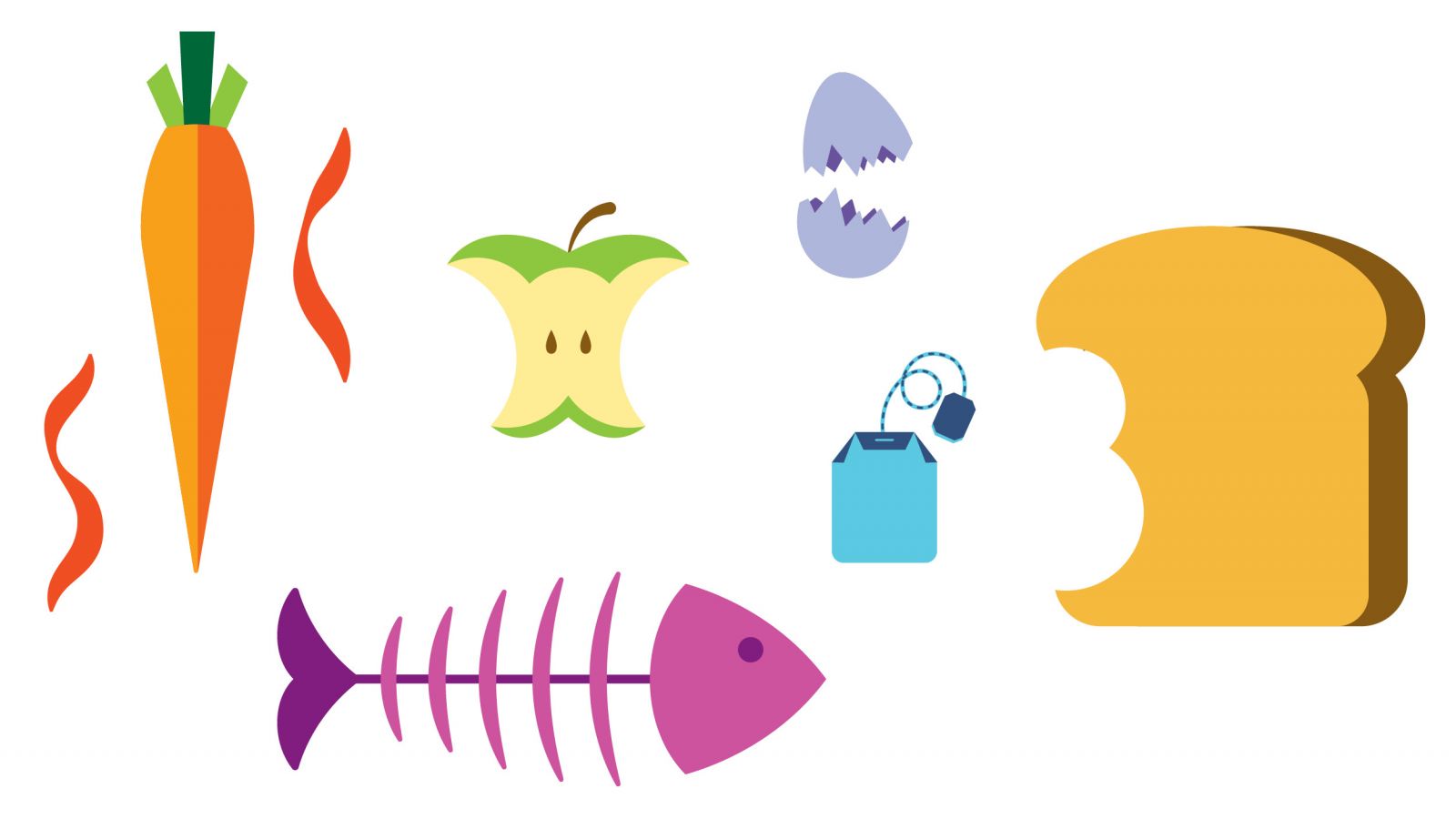
Yale is introducing new recycling signs university-wide with the goal of improving waste collection and advancing campus sustainability.
The colorful new signs were a collaboration between the Office of Sustainability, Office of Facilities, and Office of the University Printer that incorporated feedback from a variety of Yale stakeholders.
In the coming weeks, the Office of Facilities will be deploying new signs and stickers for single-stream recycling, lab recycling, food waste, and trash across campus. While Yale is not changing how it processes these materials, the new graphics aim to make it easier for users to know trash from recycling and to avoid contamination that can spoil batches of otherwise recyclable material.
“Yale has an opportunity to significantly increase its waste diversion rate and reduce contamination in the waste stream. In order to achieve that, everyone in our community needs to do their part,” says Lindsay Crum, Associate Director of the Office of Sustainability.
Below is a guide to the new signs and tips for responsible waste disposal. Find more information and helpful links at the Recycling at Yale website.
Single-Stream Recycling

- Recycling at Yale is single-stream, meaning that all recyclables (paper; metal; glass; plastics 1, 2 & 5) can go into the same recycling bin for collection.
- Items must be clean and empty of any liquids or food.
- If items are made of more than one type of material (for example, a glass jar with a metal cap) the materials must be separated before going in the bin.
- Wondering if an item is recyclable? Use the RecycleCT Wizard app to find out.
Learn more about single-stream recycling on campus.
Lab Recycling

- Labs play a pivotal role in contributing to waste diversion at Yale.
- Lab recycling is a unique stream of materials that requires adhering to specific regulations.
- To be recycled, all containers must be triple-rinsed and labels defaced.
- Do not recycle any container previously holding acutely hazardous materials (see the Acute Hazardous Waste “P” list).
Learn more about lab recycling at Yale.
Food Waste

- All food waste from Yale College dining halls and Yale Hospitality retail spaces is collected and processed at an anaerobic digestion facility in Southington, Connecticut.
- That digestion process captures resulting methane gas to use as an energy source and uses the leftovers to make organic soil amendments and compost blends.
- The university currently does not have capacity to offer compost service to non-dining spaces. Yale is working toward being able to offer compost services to a broader range of campus events.
Learn more about food waste disposal at Yale, including what items are acceptable.
Electronic Recycling
- Disposing properly of electronics and other types of universal waste helps protect ecosystems and advances Yale’s waste diversion goals.
- Universal waste generated at the university (which includes electronic waste) is handled by Yale Environmental Health & Safety (EHS).
- Universal waste includes computers; televisions; cell phones; monitors, keyboards, and mice; fluorescent bulbs; and other items.
- Batteries can either go in the trash or must be collected by EHS, depending on the type.
Learn more about electronic recycling at Yale.
5 Tips for Better Recycling
- No plastic bags. Plastic bags (shopping bags and trash can liners) do not belong in single-stream recycling. They are a significant problem for recycling sorting facilities because they can get caught in the gears of sorting machinery. Frequently, that results in entire recycling plants needing to shut down until bags can be removed by hand. Clean plastic bags can be recycled at most grocery stores in a separate waste stream.
- No greasy pizza boxes. If pizza boxes have residual grease or cheese, they cannot be recycled and should go in the trash. Clean pizza boxes can be recycled.
- Compostable dishware and cutlery goes in the trash. These products are not made of recyclable material and break down in the sorting plants. Similarly, these items should not go in food-waste bins as they are not accepted by the anaerobic digestion facility where Yale sends food waste.
- No paper coffee cups. Paper cups used for coffee and other beverages have a thin plastic liner that makes them non-recyclable. These items should go in the trash in order to avoid contamination.
- Make sure it’s empty and rinsed. Before tossing items in the recycling bin, make sure there is no food or liquid residue and give them a quick rinse. Food contamination is the primary reason that otherwise recyclable material can end up as trash.
Learn more about university’s recycling efforts at the Recycling at Yale website and explore historical data on Yale’s recycling progress at the Sustainability Data Hub.